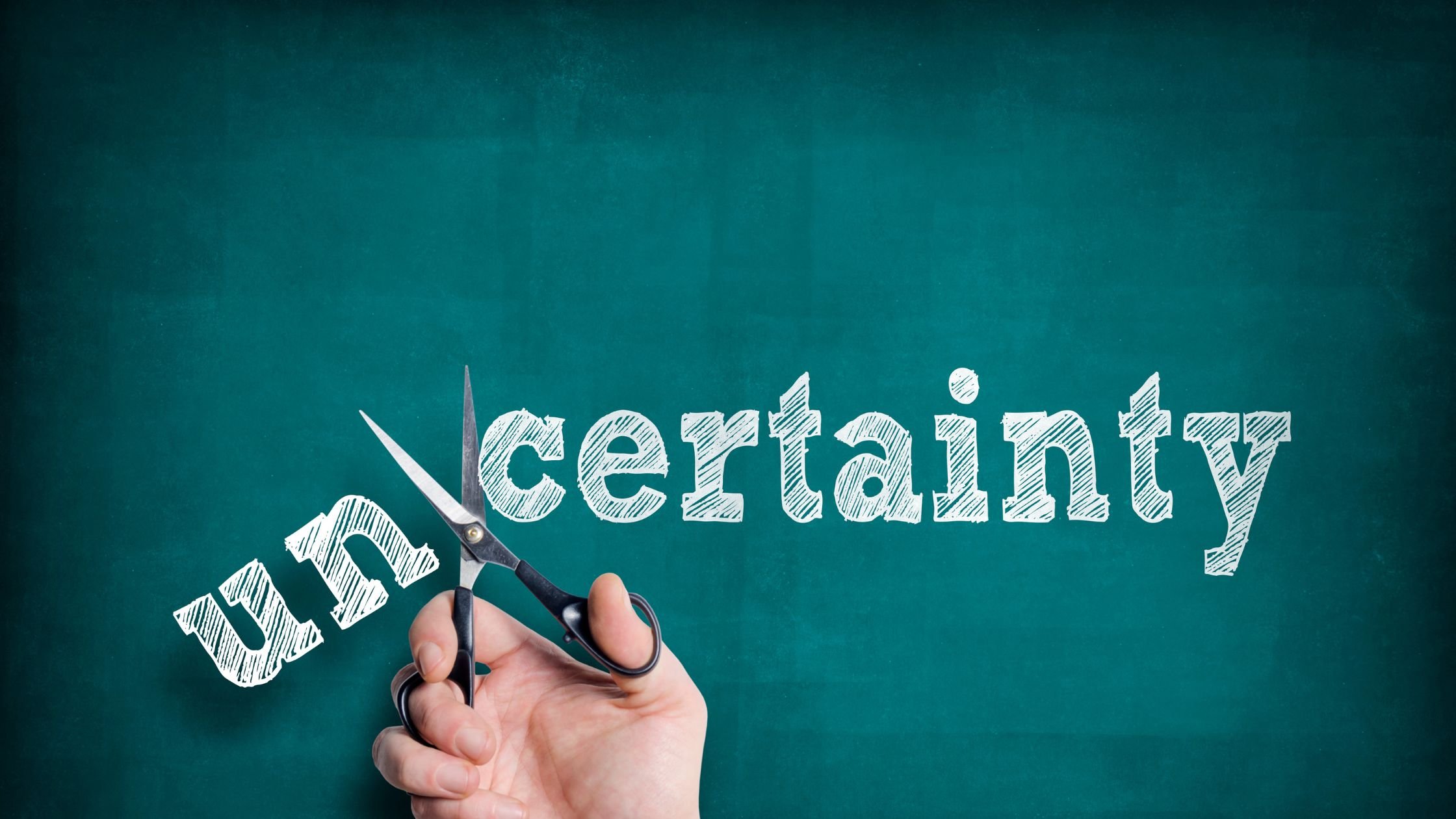How You’re Falling for the Illusion of Certainty
As I sat in the ER last weekend waiting to be taken up to my hospital room, I turned to, Sage, my ChatGPT.
“You are a board-certified ophthalmologist,” I told it. I described my symptoms: sudden onset of vision loss in one eye, resolved after 30 minutes. No pain or dizziness. Dramatically different from my history of low vision.
I told it what the doctors had said so far, what tests had been run, and what the results were. I asked it for best-case and worst-case scenarios and to predict which one was more likely.
I was scared, and I wanted answers.
I wanted to know if I was going to lose more sight or have a stroke. I wanted to know that I was going to be ok. I turned to AI looking for certainty.
How very human of me.
You see, as humans, we have a deep yearning to know. We seek certainty in so many ways, shapes, and forms, which makes sense because certainty = safety.
The thing is, though, we are utterly and completely twisted up when it comes to knowing.
The Difficulty of Not Knowing
The reality is, we live in a constant state of uncertainty. No one, and I mean no one, really knows what the future holds. Yet, for the most part, we bebop along under an illusion of certainty, acting as though we know how things will unfold.
Are you worried about the plane barreling toward you right now about to crash?
No. Because that’s not going to happen.
But are you certain? Do you know that for sure, 100%?
Again, no. But we don’t worry until there are clear signs that something is amiss. We assume certainty when all we really have is likely.
That’s all well and good because under that illusion of certainty, we can assume safety and go on about our business.
Unfortunately, right now, we are bombarded with signs that things are most definitely amiss, and we no longer have that assumption of certainty. The illusion has been shattered. Things feel unsafe, and our anxiety is on high alert.
If you find yourself desperately seeking answers, trying to know, find out, figure out, solve, or overanalyze, this is why.
You want to know. You think you need to know.
But you can’t.
Just as ChatGPT can’t actually tell me what my future holds, no one or thing can tell you yours.
I promise.
No amount of watching the news or speculating or reading tea leaves will give you actual certainty. Illusion? Yes. Certainty? No, my friend, and it’s time to start making peace with that.
“I can’t know that right now” is a difficult pill to swallow.
But go on and grab a big glass of water. You have to learn to sit in the uncertainty, to stop grasping at straws, searching for control of things that you can’t.
You Don’t Know What You Think You Do
As much as our minds meltdown in the face of uncertainty, they malfunction in the other direction, too, mistaking believing for knowing, and, again falling prey to the illusion of certainty.
Thinking is not the same as knowing, and belief is not the same as fact.
Yet people mix these up all the time.
A belief is something that your mind takes to be true, but you must realize that this “fact” is mentally constructed. It is a product of your mind, not the external world.
Do not mistake confidence for competence. The degree to which you believe something does not make it truer. Nor does consensus.
Even if a significant number of people agree with you, consensus does not equal truth. How many people believed the Earth was flat? That it was the center of the universe? That women were witches? Or that smoking and sugar aren’t harmful?
People died because of those “facts.”
It may feel tempting to righteously cling to your beliefs as right or fact, especially when you operate in an echo chamber. There is strength in numbers, for sure. But strength can translate to rigidity.
And that’s actually a weakness.
A mighty oak tree may be incredibly strong. But its trunk is rigid. It would not survive a hurricane the way a palm tree can.
You must be the palm tree.
Examine and question what you “know.” Be willing to bend, to adapt to circumstances, to be flexible.
You don’t know for a fact that something is about to happen. You don’t know for a fact why someone did what they did. You really don’t know nearly as much as you think you do, and that is also a tough pill.
Tolerating Uncertainty
Some people can naturally go with the flow, sit in the not knowing, and take things as they come. Others, not so much.
Even small bits of uncertainty can spike anxiety and the behaviors that come with it. The things you do to “make sure” and “just in case.” The reassurance-seeking, checking, avoidance tactics, and all of the other unhelpful things that anxiety drives us to do.
As a practicing psychologist specializing in anxiety, I spent years helping people learn to tolerate, even embrace, uncertainty because it is a fundamental skill for living a bold life.
Recognize when things are 1) not knowable, 2) by you, 3) right now, and remind yourself that seeking certainty where none exists is fruitless. Intentionally and willingly invite uncertainty into your life so that you practice accepting it.
Be precise with your language. You think or believe. You don’t know. Adopt some humility and hold lightly to your beliefs. They could be wrong.
Be the palm tree, my friend.
“Uncertainty is the only certainty there is, and knowing how to live with insecurity is the only security.”
Are you ready to live a bolder, happier life?
Subscribe to The Way I See It monthly newsletter to get science-backed insights and inspiring stories delivered straight to your inbox.

